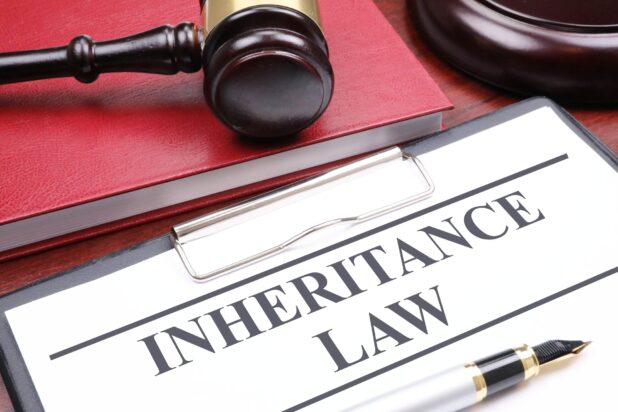The UAE has announced some significant changes to the regulations impacting the family and personal life in the nation. One such vital reform is related to the modifications to inheritance rules, which do not automatically distribute property according to Islamic or Sharia law. It means that a non-Emirati person’s property can now be distributed under regulations according to the Law of the individual’s native country. The partition of the property in the case of divorce will likewise be subject to similar restrictions. It is the latest in a series of steps to guarantee the country’s appeal to expatriates wanting to settle in the UAE. This article will highlight the significant changes relating to the inheritance law that have taken place due to the recent amendment in the Federal Law.
What is the position now on Inheritance Law?

Article 17 on the Civil Transactions Law has been superseded by Article 1 of Federal Decree-Law No. September 30 September 27, 2024, which reads as follows:
(1) The Law in effect in the State of the testator at the time of his death governs his inheritance. Subject to the provisions of Paragraphs (3) and (4) of this Article.
(2) Financial rights that exist on the State’s territory and belong to a foreigner who has no successors are to be transferred to the State.
(3)
- The substantive provisions of the Will and all actions related to the after-death stage shall be governed by the Law of the State specified by the Will or the alienation act, or
- If the Will specifies no law or the alienation act, the Law of the Stateto which the person carrying out such action belonged at the time of his death.
(4) The form of the Will and any after-death alienations shall be controlled by the Law of the State in which the person carrying out such alienations at the time of its issuance, or the Law of the State in which such action occurred.
(5) Provided that the Law of the United Arab Emirates governs a foreigner’s Will for real estate in the UAE.
In simple terms, these amendments now allow expats and foreigners with real estate investments in the UAE to designate the legislation they want to apply to the distribution of their UAE assets in their Wills. The distribution of a person’s property among their family members is now determined by their state law. Regardless of religion, an individual’s inheritance will be distributed according to their Law of state at the time of death. In case of written Will, it will be carried out as per the applicable provision written in such Will.
Furthermore, if there is no Will or if the applicable legislation is not specified in the Will, the deceased’s Law of State laws will apply. In an exceptional case, if a person purchased a property in the UAE and died intestate (without making a will), the property will be subject to Sharia law. Visit hhslawyers.com to know more
Laws in the United Arab Emirates Relating to Inheritance-Position Prior to the Amendment of 2024

In the United Arab Emirates, Sharia is the major basis of inheritance law, and Federal Laws are based on it. The two major legislation that regulate succession are the Civil Transactions Code (Federal Law No. 5 of 1985) and the Personal Status Law (Federal Law No. 28 of 2005). Following are the laws which were applicable to the Inheritance of Non-Muslim expats prior to the amendments of 2024.
- Until a non-Muslim elects otherwise, Article 1(2) of the Personal Law stated that the provisions of this Law apply to non-citizens unless one of them insists on adopting the law of their nation. As a result, if a non-Muslim foreign person dies in the state and leaves real estate or other assets in the country, the law of his home country may apply, and his heirs may make a claim in court.
- Article 17(1) of the Civil Transactions Code (Civil Law), on the other hand, stipulates that the testator’s inheritance is governed by the legislation in effect in his state at the time of his death.
The Personal Law of the United Arab Emirates permitted the non-Muslims to make a Will and distribute their assets according to their preferences. Prior to the amendment, the UAE’s Personal Law allowed non-Muslims to write a will and share their assets according to their wishes. However, if a foreign person dies without a will, the Civil Law and Personal Law empowered the courts to divide the deceased’s possessions according to Sharia principles.
Outcome

It is the significant reform that will indirectly entice foreign direct investment into the nation. Non-Emiratis living in the UAE will benefit from the new legislation. It gives expats comfort by allowing their home country law to prevail in the event of their death, rather than their estate being divided according to Sharia law. Because the new legislative amendments will create a legal foundation for them to do so more proactively, there is now a higher expectation from the courts to implement home country law in practice. Expatriates have the option of opting out of Sharia law, allowing them to make provisions in their Will according to the laws of their home country. These reforms now allow expats and foreigners with real estate interests in the UAE to designate the legislation they want to apply to the distribution of their UAE assets in their Wills.
The purpose of this article is to provide an overview of the subject. This article was produced with great care to ensure correctness. Because individual circumstances may vary, it is not meant to give legal advice or predict a specific conclusion. Readers considering legal action should seek legal advice from an experienced attorney to learn about current laws and how they may apply to their case. Don’t hesitate to contact experts if you require any legal assistance on the subject presented or related issues.
 World Magazine 2024
World Magazine 2024






